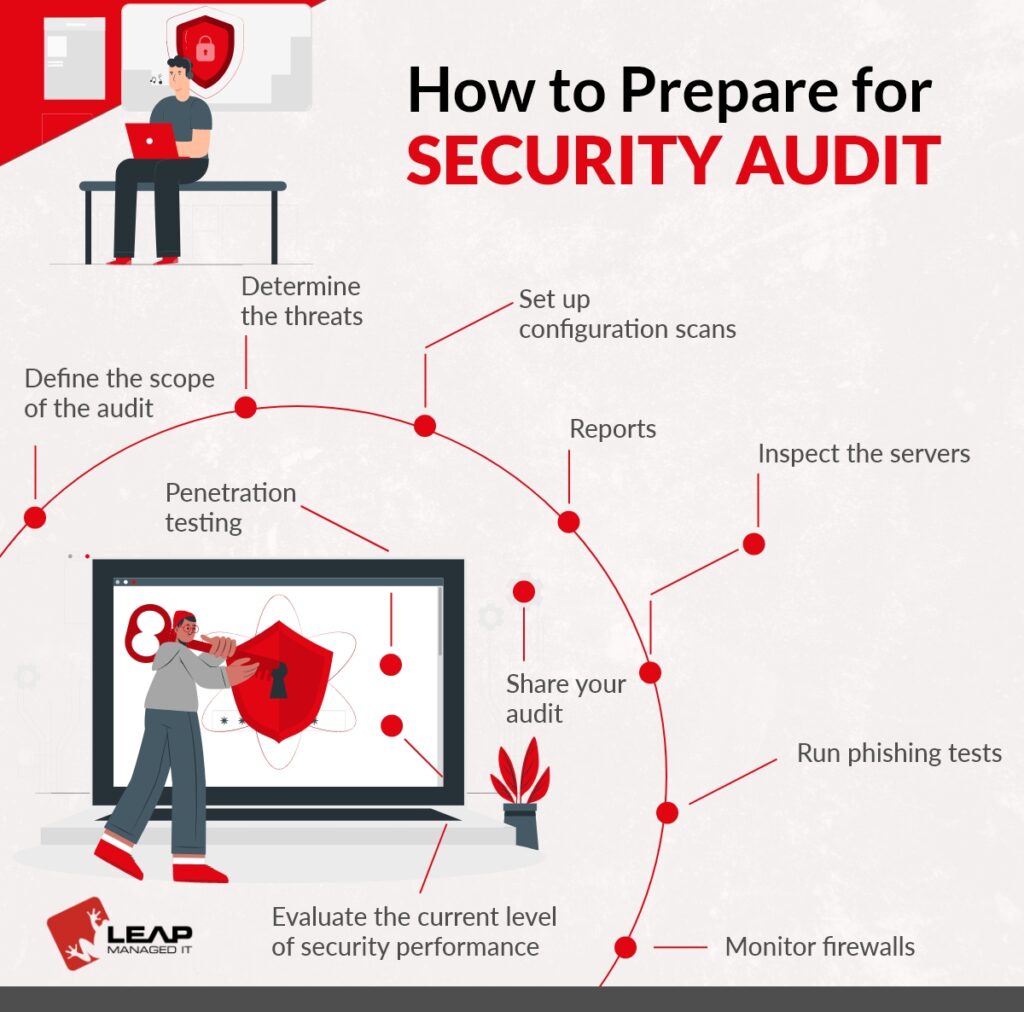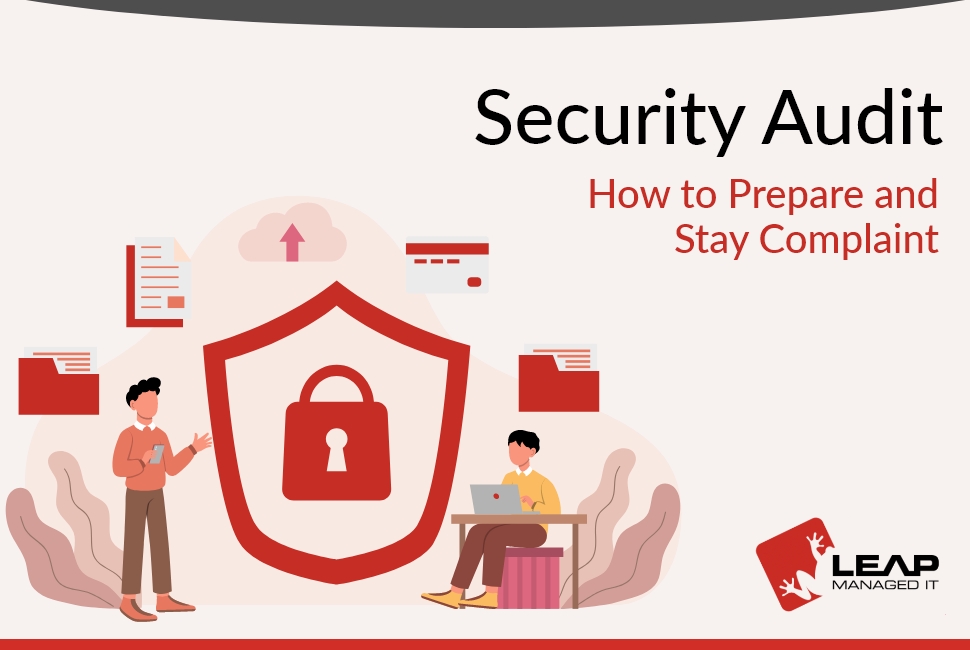Businesses of any size must conduct security audits regularly as it helps in protecting the business from being vulnerable to security attacks. A security audit not only protects your data but also helps in detecting the resources that can bring cyber attacks to your business.
We, cyber security experts at LEAP Managed IT will share some important information about preparing for a security audit.
What is a Security Audit?
A detailed evaluation of your organization’s information system is known as a “Security Audit”. This evaluation compares the security of your system to a checklist of industry best practices, standards, or governmental regulations.
It is essential that companies must stick to certain compliance standards. Moreover, you must ensure that these compliance certifications are renewed each year and this can be done when you perform security audits either internally or externally on a regular basis. Furthermore, customers may occasionally request you to audit the security of your company, to ensure the security of their data against attackers.

Prepare Your Business For a Security Audit
The security audit can help improve your business’s cybersecurity system and as well as find flaws that will pave the way for security attacks.
Below are some ways to prepare for your security audit,
1. Find Out the Reason For the Audit
Analyzing the reason for the audit is critical, and some fundamental reasons for security audit could be:
- Helps in reviewing whether the business is compliant to all necessary regulations and guidelines
- Helps in identifying the gaps and flaws in the existing system
- Eliminates vulnerabilities and improving the network’s cybersecurity
- Evaluates the existing policies
2. Notifying Both Internal and External Stakeholders
It helps everyone in the organization to take steps in advance and prepare for the audit. This step is all about arranging a meeting with your team, assigning roles and responsibilities, and ensuring all the necessary things are taken care of before the audit. Notifying the stakeholders is important because it will help auditors with a better understanding of the company’s policies and procedures.
3. Evaluating Your Inventory
Understanding your organization’s assets and inventory will help you in evaluating your current status and as well as helps in preparing for the audit. Hence, evaluate your inventory to avoid interruptions during the security audit.
4. Review and Cross-Check Your Policies
Your company has a variety of security policies, examine them to ensure that they are in place and consistent. This step will also help in finding outdated policies and keeping them current. If any of your policies are outdated then, it may create interruptions during the security audit.
5. Examine the Outcome of Your Previous Security Audits
Examine your prior records if you have ever undergone an audit. Verify that you have put the previous advice into practice. You can understand all the standards by looking at the results of your previous audits.
6. Prepare a Checklist
Make a list of all the papers and documents you will need for the audit before you begin. This will assist in getting ready for the audit beforehand and centralizing information for simple access. The checklist is effective since it will lessen unnecessary stress for the auditors and the organization throughout the audit.
7. Self-Assessment
Making a self-evaluation before allowing external auditors to access your files and documents is a wise move. Finding security threats and weaknesses in your firm can be aided by conducting an honest and competent internal audit. The outcomes of the self-assessment can then be compared to those of the external audit. Because you already know what to do and can try to rectify the problems before the audit, this situation is less stressful.
Checklist For your Security Audit
Performing a security audit is a way to monitor and evaluate your company’s system. The checklist below will help you in preparing your company for the audit:
- Define the scope of the audit – determining the assets that you need to focus on during the audit
- Determine the threats – making a list of all potential threats
- Evaluate the current level of security performance – assessing the current level of security performance can identify the weak links
- Set up configuration scans – can detect security vulnerabilities
- Reports – keep an eye on the reports as they can generate valuable information
- Inspect the servers – check for server configuration and monitor DNS for any unexpected changes
- Run phishing tests– can assess your vulnerability level
- Penetration testing – locates all access points and removes unauthorized points
- Monitor firewalls – keep an eye on any inconsistent and unusual behavior in the firewall
- Share your audit – create transparency with your team by sharing what you have found
Ready for Your Security Audit?
Every organization finds a security audit to be a stressful process. However, it’s also a great chance to upgrade and strengthen your operating and security systems. A security audit will assist in defending your company from threats. So always perform regular security assessments for the sake of your company.
- Get ready for the audit in advance.
- Assign roles and duties to the members of your team
- Examine your security procedures
- Make a self-evaluation
- Prepare for the actual audit
Being the Ridiculously Helpful IT Leader in Indianapolis and Central Indiana is not easy. Our goal is to help clients in the Indianapolis area feel confident about their technology while focusing on growth and the things that are important to them.
See how we help clients by developing a tailored IT Master Plan and how we can be Ridiculously Helpful to you. Click here to learn more:


